The Better Together Award is an international competition seeking
collaborative innovations solving local climate challenges.
Cities, towns and regions are the pioneering places where local solutions for reducing greenhouse gas emissions and adapting to the effects of climate change need to develop. Start-ups, social enterprises or civil society organisations in all parts of the world are exploring and implementing such new solutions. Often they use digital technologies to make their cities and regions more sustainable and resilient. These solutions can create longer-lasting impact if they are implemented together with local authorities—and can only be effectively realised and scaled if stakeholders adopt a shared mindset of collaboration.
Winners must...
- exhibit their collaborative innovation as a team of two partners
- have already successfully implemented their innovative solution
- have the ambition to scale their solution and be an inspiration for local climate action
And the Winners 2019 are...
Carbonlites
India suffers from illegal dumping and overfilled, mismanaged landfills; leading to mess, chemical leaching and greenhouse gas emissions. It is so bad that the renowned ‘Garden City’ of Bangalore is today known as “Garbage City”. Kevin Houston and Somnath Narayan founded the ‘Carbon Masters’ CO₂ mitigation consultancy after meeting at the University of Edinburgh, but when Somnath’s visa expired they needed an idea linked to his home country, India. They set about prototyping a biogas and biofertiliser producing station for a temple in Bangalore, installing it in a refurbished shipping container. When the local ‘Residents Welfare Association’ spotted their solution — and smelled... nothing — the new project, “Carbonlites”, took off.
eTrash2Cash
Trash means trouble to the “Refuse Management & Sanitation Board” (RMSB) of Kano, Nigeria: The city generates around 10,000 tons of rubbish every day, but not even a third of it is properly reused, recycled or disposed of. The rest is often illegally burned and releases hefty amounts of methane and other greenhouse gases, as well as pollutants that pose health risks to the city’s inhabitants. This needed to change. eTrash2Cash’s app and e-payment solution offers a chance to turn plastic, paper, metals, food, glass and other trash into cash, and primarily focuses on women with low incomes. Collectors can take trash to 20+ ‘recycling kiosks’ all around Kano, where the waste is sorted, processed and recycled into reusable products for use by the same community. In return, collectors earn 5-6 US dollars per month, which they can also opt to put towards health insurance — a first for many.
Jelbi
‘Jelbi’ is a service that will soon be launched by Berlin’s public transportation agency, the BVG. It merges mobility options such as public transport, shared vehicles and on-demand services in one app, allowing for seamless travel across the city and easy payment. Trafi, the Lithuanian start-up that provides the white label technology, has a proven track record in cities such as Jakarta, where car use significantly dropped and bus transport rose by 20% after it introduced a similar application. The Berlin collaboration will mark the first time that a European city of this size provides a deeply integrated mobility network, with more than 25 different public and private transportation partners combined in one platform.
Mobility Urban Values Game (MUV)
The mobile app tracks users’ daily routes and assigns points for sustainable behaviours across 31 indicators, encouraging them to participate in city-wide challenges. During the testing phase in Palermo, Italy, the first 2000 users reduced their carbon footprint by an average of 54%. The data gathered via the app and sensing stations around town will be used to allow policymakers to enhance planning processes and let civic hackers build new services. With this user-centred approach, city planning follows citizens’ habits, not the other way around.
MUV is the result of a collaboration between the municipality of Palermo and the social innovation lab PUSH, and both partners coordinate local activities such as co-creation workshops and design sessions with citizens and stakeholders. After receiving ‘Horizon 2020’ European research and innovation funding, five more pilot projects have been established — in Amsterdam, Barcelona, Fundao, Ghent and Helsinki. Together, these will provide mobility data and insights from diverse areas of the EU.
XDI Sydney
The platform XDI Sydney created by the XDI Cross Dependency Initiative combines data sets with extensive climate models, to calculate the climate change and extreme weather risks that city assets will face. From pipes to train stations, the XDI platform lists 100 different city assets and is capable of integrating asset cross-dependencies and critical services such as power, water and communications into its analysis. But the platform is heavily data-dependent, which is where the New South Wales Office of Environment and Heritage comes into play. The State government department brought local government and State agencies and infrastructure providers together to pool funding for the project and to open their data up to XDI, despite some parties being competitors. The City of Sydney and Northern Beaches Councils (in the Sydney region) were foundation partners.










